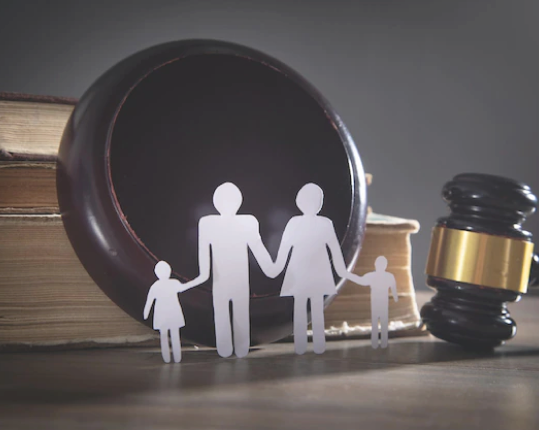The Family Court in Dubai plays a vital role in protecting the rights of children and ensuring their well-being through a clear and structured guardianship process. Guardianship cases require sensitivity, precision, and adherence to UAE laws, ensuring that decisions are made in the best interest of minors. We take a closer look at how Dubai’s Family Court provides comprehensive legal support in these matters.
Understanding Guardianship in Dubai
Guardianship refers to the legal authority granted to an individual to care for a child or dependent, manage their affairs, and make decisions on their behalf. In Dubai, this is governed by the UAE Personal Status Law for Muslims and Federal Decree-Law No. 41 of 2022 for non-Muslims. The Family Court ensures that guardianship is only granted to those who are legally and morally fit to fulfill these responsibilities.
Types of Guardianship Recognized by Dubai Family Court
The Family Court in Dubai distinguishes between different forms of guardianship to ensure clarity in roles and responsibilities:
- Custodianship – Focuses on the child’s daily care, upbringing, and education.
- Legal Guardianship – Involves managing the child’s assets, finances, and making critical legal decisions.
- Temporary Guardianship – Granted in specific circumstances, such as when a parent is unable to fulfill duties for a set period.
Each type is carefully evaluated to ensure it meets the child’s best interests.
Eligibility Requirements for Guardianship
To be appointed as a guardian, the applicant must meet strict legal criteria:
- Be of sound mind and good character.
- Have the financial capacity to provide for the child.
- Share the same religion as the child, under UAE law.
- Demonstrate the ability to protect the child’s rights and provide emotional stability.
The court prioritizes close family members, such as parents or grandparents, unless there are clear reasons to consider others.
The Guardianship Application Process
The Family Court in Dubai follows a structured approach to guardianship applications:
- Filing the Application – The applicant submits a guardianship request, supported by identification, proof of relationship, and relevant documents.
- Court Review – The court assesses the applicant’s eligibility, considering financial records, moral character, and living conditions.
- Hearing – Both parties (if applicable) present their case, and evidence is reviewed.
- Judgment – The court issues a decision, outlining the scope and duration of guardianship.
- Enforcement – Once approved, the guardian’s role is legally recognized and enforceable.
Role of Guardianship in Protecting Children’s Rights
The Family Court ensures that guardianship arrangements safeguard the child’s safety, education, health, and emotional stability. This includes:
- Overseeing Educational Needs – Guardians are responsible for ensuring the child attends school and receives proper academic support.
- Healthcare Decisions – Guardians make medical decisions and ensure timely treatment.
- Financial Management – Guardians manage any property, inheritance, or funds belonging to the child.
Guardianship in Cases of Divorce or Death
When parents separate or one parent passes away, the Family Court steps in to ensure children are not left without proper care. In such cases:
- Custody is typically granted to the mother, while legal guardianship over financial matters remains with the father.
- If both parents are unavailable, the court appoints a relative or trusted individual as a guardian.
- The court’s primary goal is to avoid disruption in the child’s upbringing.
Guardianship for Non-Muslims in Dubai
With Dubai’s diverse population, guardianship laws for non-Muslims follow Federal Decree-Law No. 41 of 2022, allowing expatriates to apply their home country’s laws if desired. However, they may also opt for UAE guardianship regulations, which are handled with equal diligence and fairness.
Disputes in Guardianship Cases
Conflicts can arise between family members regarding who should serve as a guardian. The Family Court resolves these disputes by:
- Reviewing evidence of capability and stability.
- Considering the child’s preferences, if they are mature enough to express them.
- Ensuring the decision prioritizes long-term welfare over personal interests.
Termination or Change of Guardianship
Guardianship may be revoked or modified if:
- The guardian fails to fulfill their responsibilities.
- The guardian engages in harmful behavior towards the child.
- Circumstances change, making another person more suitable.
The court regularly reviews guardianship arrangements to ensure ongoing suitability.
Legal Support and Documentation
Guardianship cases in Dubai require accurate documentation and effective legal representation to ensure a smooth and efficient process. Essential documents include:
- Birth certificate of the child.
- Proof of relationship.
- Passport and Emirates ID of the applicant.
- Financial capability evidence.
- Medical reports if health issues are involved.
A professional family lawyer in Dubai can guide applicants through these requirements to avoid delays or rejections.
Conclusion
The Family Court in Dubai plays a crucial role in ensuring that guardianship decisions protect the welfare of minors. By upholding strict legal standards, prioritizing the best interests of the child, and addressing disputes fairly, the court provides a transparent and efficient guardianship process for both citizens and expatriates.

